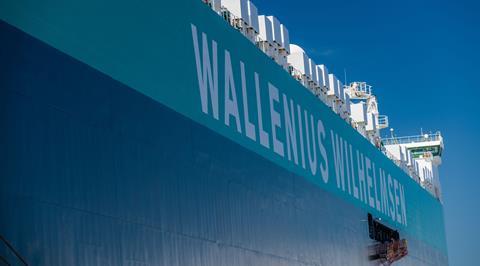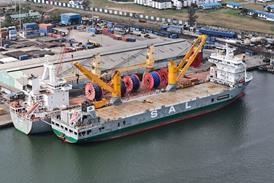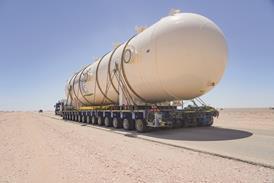Ro-ro shipping specialist Wallenius Wilhelmsen has signed a significant contract in the premium car segment valued at more than USD1 billion.

The three-year deal covers both shipping and logistics services, as well as the use of biofuel in its shipping activities. The contract started between January and April 2024 with rates in line with current market levels, and Wallenius Wilhelmsen said there is an option to extend the deal by a further two years.
“We see manufacturers shifting priorities and increasingly looking for solutions which provide predictability in their supply chains. In this case, it means longer-term contracts encompassing both logistics and shipping services. This goes hand in hand with Wallenius Wilhelmsen’s goal of being a total solution provider in finished vehicle logistics. This multi-year contract allows for better long-term planning and extended predictability both for the customer and us,” said Lasse Kristoffersen, president, and ceo at Wallenius Wilhelmsen.
The group’s core market, the transport of cars, has been in rude health for the past two years. The carrier has also signed a couple of large high/heavy rolling cargo contracts this year, including a multi-year shipping contract with a leading construction machinery company in South Korea. That agreement is valued at approximately USD290 million, based on expected volumes over the initial three-year period, which commenced in January 2024.
That contract also includes a two-year extension option as well as Wallenius Wilhelmsen’s reduced carbon freight service, whereby customers can typically reduce their Scope 3 CO2/GHG supply chain emissions by approximately 20-25 percent through the utilisation of B30 Biofuel.
In November last year, Wallenius Wilhelmsen’s ro-ro Torrens became the first vessel in its fleet to bunker B30 HSFO-Biofuel. Calling at Masan port in South Korea, as part of its regular sailing schedule, the ro-ro bunkered the drop-in fuel as part of a trial. The HSFO blended with UCOME (bio feedstock) can be used in existing engines without any modification or tank cleaning. At that time, the carrier said that it was assessing the viability of both HSFO-biofuel blends and VLSFO-biofuel blends in the Asia region as part of its global deepsea trade decarbonisation strategy.
















